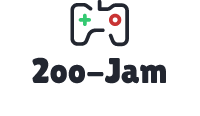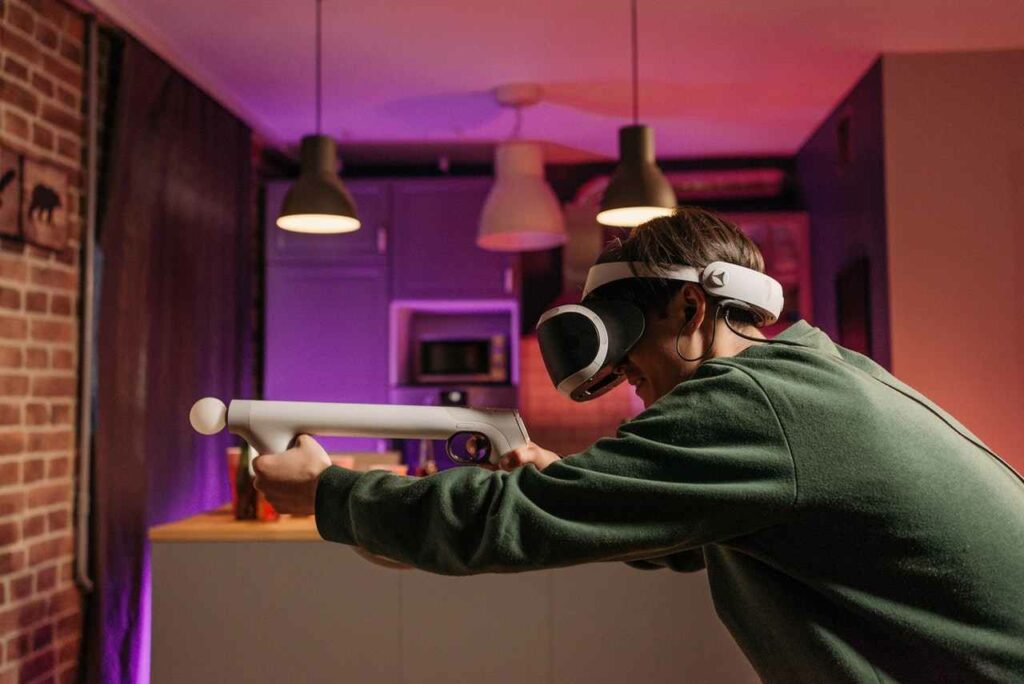Missing the ultra-compulsive action of Flappy Bird? Indie developer Xiotex has a shooter that blasts the brain’s addiction centres in the same way.
If you are anything like me, you can split your life into two distinct times: the time before Super Hexagon existed, and the time afterwards. Since the Hexagon Dateline, you will have spent significant lengths of time staring at moving hexagons of crisp light on your phone or your computer screen, listening to pulsing chiptune, learning absolutely useless skills like how to cope when the hexagon suddenly becomes a pentagon or the right way to get through those really annoying hook-shaped patterns on Hexagoner. And if you’ve even touched Flappy Bird once then you, like me, will be aware of how some games can feed on the part of your brain that just wants you to be a little bit better, and how once you’ve begun to play, stopping can be incredibly hard.
I was an hour and a half into my first session of Blast ‘Em before I managed to pull myself away, and I’d spent an hour of that promising that I’d only have one more go.
Power and precision
This is what Blast ‘Em is. It’s a deceptively simple game; like a traditional shmup, you control a ship flying sideways through space, using your mouse to maneuver it on screen. It moves as fast as you can move your mouse. It shoots, constantly, at speeds dictated by which power-ups you’ve managed to snag. You have to avoid the bullets and the enemies, and collect the coins they leave behind after you’ve shot them. It’s simple. Initially, it doesn’t seem terribly interesting, if that’s all there is.
It’s also slow, to begin with. Your rate of fire is slow. The enemies are few and fairly docile, easy to hit and to avoid. But after you’ve played through a few times, you start to realise that these early stages of the game are where your run can be made or broken; quite aside from accidentally smashing your ship into a slow-moving alien in a fit of over-enthusiastic mouse-waggling, you realise that your coins are also your power-up currency, and the game doesn’t ever give you quite enough of them to be comfortable. Better to grab them now, while they’re easy to get and the screen is still quiet enough for you to be able to distinguish between collectibles and bombs. Blast ‘Em’s opening section, which you will play over and over and over again, becomes an exercise in elegance and precision, hoovering up as many coins as you can possibly manage in the knowledge that later on, that will matter.
Whenever you can afford a power-up, in the early stages, you should probably buy one. Rapid fire is a big upgrade, taking you from a shot a second up to a constant stream, but it has to be: as soon as you get past the point where the first power-ups are likely to show, the difficulty ramps up. More enemies, more bombs. Then, after the point where you can probably just about afford the triple shot, vertically moving enemies and asteroids. You can’t afford to be precise and pick off every ship as it rolls towards you: you have to refocus, let your awareness drift outwards, rely on your peripheral vision for bomb detection. You have to hope that you’ll have enough coins to afford to keep your power-ups running, rather than planning for it.
Then, after two minutes or so of play, coins are no longer a worry and Blast ‘Em becomes a game of survival and little else. In just a few short minutes it manages to change the way you play completely, from deliberate precision to diffuse, organised panic. It offers glimpses of that strange hypnotic state that characterises the best Hexagonish games: a fragile balance between concentration and instinct, where thinking too hard about what you’re doing can cause it all to collapse.
Random encounters
Blast ‘Em is grimier than Super Hexagon, with a gritty crunchy old-school aesthetic, but no less charming for it; the downside is that sometimes your ship’s collisions are down to you failing to judge the pixel-thin collision distances around chunkily-drawn enemies. It’s also not too hard to master, and once you’ve hit that survival threshold there’s less incentive to keep restarting. Its randomised enemies sometimes serve it poorly; there’s no pattern to learn, and no higher levels of skill to master once you can respond to the basics well. There doesn’t seem to be much left to see or achieve, beyond a personal best and a place on the leaderboards, and Blast ‘Em currently lacks friend leaderboards.
Flappy Bird acts on a similar feedback loop, though a much shallower one, and it succeeds because it’s on mobile. Super Hexagon is also at its best on mobile. Hexagonish things seem more at home there, where short serve play is almost mandatory and there are inevitably natural breaks that will prevent an endless loop of play. Blast ‘Em, despite being perfectly suited mechanically to mobile, would struggle there: controlling the ship with your finger while still being able to see the screen would be impossible. That seems a shame; it would very much life as a short-serve commute-buster. Sitting down at the PC to play it feels like more of a commitment than it ought to require.

